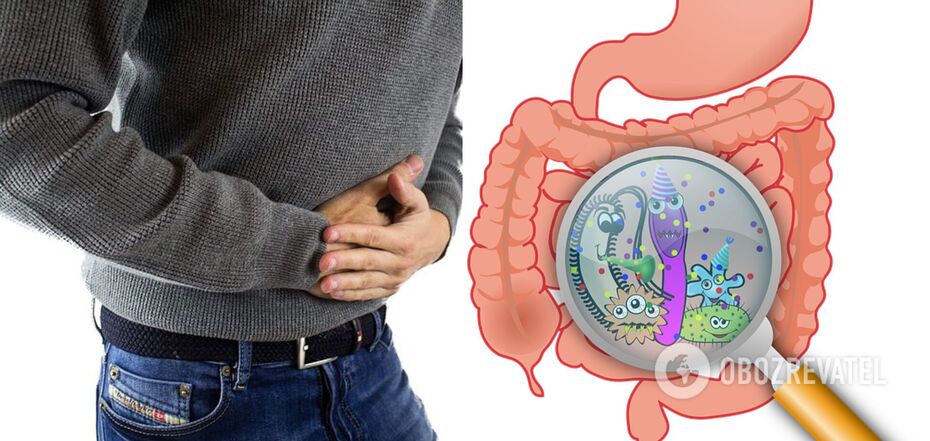Society
What you need to know about Crohn's disease: explanations from doctors
Everyone in the world wants to be healthy and live a long life. Since childhood, we often hear that it is very important to establish the correct functioning of the intestines. And this is true, as most of the human immunity is contained in the intestines. Unfortunately, it is not always possible to protect ourselves from disorders of its functioning. For example, Crohn's disease is a common inflammatory bowel disease.
Despite the development of medical science, it is currently unknown under what conditions the disease develops, and there is no cure for it. However, Healthline, after consulting with general practitioner Saurabh Sethi, MD, named possible symptoms and provoking factors of Crohn's disease, as well as described the methods of therapy.
Since the disease is not yet 100% understood, doctors can only speculate on the causes of its occurrence and recommend ways to alleviate its symptoms.
As a rule, Crohn's disease affects the small and large intestine, although it can develop in any part of the gastrointestinal tract. Symptoms can vary and differ from person to person, and the severity can range from mild to debilitating.
What are the signs of Crohn's disease?
Crohn's disease is not characterised by a sudden onset; it usually develops gradually, worsening over time. Early symptoms include:
Diarrhoea
Abdominal cramps
High temperature
The presence of blood in the stool
Fatigue
Loss of appetite
Weight loss
Feeling of not having a bowel movement after defecation
Frequent urge to defecate.
Sometimes such complaints can accompany other diseases, such as indigestion, food poisoning or allergies. However, if the disease progresses, the general condition can worsen and be complemented by other symptoms, such as the development of a perianal fistula, which causes pain and inflammation around the anus, the development of ulcers, inflammation of the joints and skin, etc.
If you notice such symptoms, you should not delay your visit to the doctor, as a high-quality examination to make a diagnosis will help to avoid complications and start treatment at an early stage of the disease.
Causes of Crohn's disease
To date, a single cause of the disease has not been identified, but there are factors that can increase the risk. The most common ones include the immune system; genetics; and family history. In addition, smoking, age, or the duration of the disease may affect the severity of the symptoms.
People with Crohn's disease are more prone to developing intestinal infections caused by bacteria, viruses, parasites, and fungi, which can complicate the course of the disease. At the same time, yeast infections can affect not only the gastrointestinal tract but also the lungs, so it is important to detect and treat them in time.
How to diagnose Crohn's disease?
The diagnosis can only be made by a specialist after a thorough examination and exclusion of other causes.
To confirm Crohn's disease, the doctor may recommend the following:
A blood test to detect anaemia and inflammation;
Stool analysis for the presence of occult blood;
Endoscopy to analyse the condition of the internal part of the gastrointestinal tract;
Colonoscopy to examine the colon;
Computer and magnetic resonance imaging to examine the condition of certain tissues and organs;
Particle biopsy to examine intestinal tissue.
After a detailed analysis and exclusion of other possible diseases, an accurate diagnosis can be made. In addition, you may need to take these tests again to understand how quickly the disease is progressing.
How to treat Crohn's disease?
Unfortunately, there is no cure for Crohn's disease today, but there are enough methods to ease its course and slow its progression.
Diet
Food does not cause Crohn's disease, but it can contribute to its exacerbation. After the diagnosis, your doctor may recommend that you seek advice from a nutritionist and keep a food diary to understand which foods affect your health and the course of the disease.
The diet plan will vary from person to person, as Crohn's disease affects different parts of the gastrointestinal tract. Generally, it is recommended to adjust your fibre intake, drink enough water, and cut down on fats and dairy products. In this way, you can fill your diet with nutritious and healthy foods that will not harm your body.
Medication therapy
Several types of medications are used to relieve the symptoms of the disease. Usually, antidiarrhoea and anti-inflammatory drugs are prescribed, but depending on the severity of symptoms and complaints, they can be combined with others.
For example, immunomodulators may be recommended to reduce the inflammatory response and regulate the immune system, and antibacterial therapy may be prescribed to reduce drainage and heal the fistula if necessary. In addition, to treat severe manifestations of the disease, specialists can use biological treatments that involve blocking certain types of proteins responsible for inflammation.
Surgical intervention
If medical treatments fail to improve the course of the disease, surgery may be required. Such procedures will be aimed at removing damaged areas of the gastrointestinal tract and reconnecting healthy sections, as well as restoring tissue and treating deep infections.
Crohn's disease is a serious disease that has not yet been fully studied, which makes it difficult to treat. However, if you have certain complaints, you should seek advice and help in a timely manner, as early diagnosis and lifestyle correction can significantly alleviate your condition and prevent the development of complications.
Earlier, OBOZREVATEL told about the study of intestinal flora. Scientists believe that unique Odoribacteraceae bacteria can stop the growth of other dangerous bacteria and promote longevity.



























